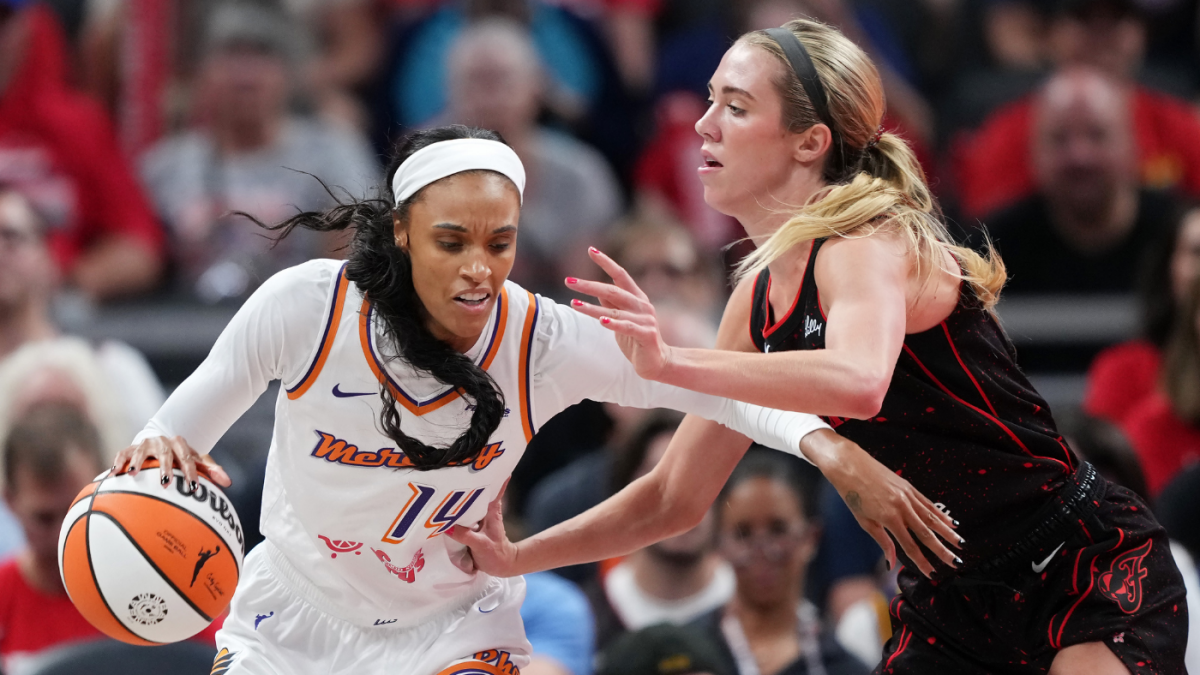The DeWanna Bonner Controversy: A Deep Dive into Fan Reactions and WNBA Dynamics
Introduction: The Storm Surrounding DeWanna Bonner
The world of professional sports is a stage where drama and competition collide, often creating moments that resonate far beyond the court. The recent controversy surrounding WNBA star DeWanna Bonner’s return to Indiana has ignited a firestorm of debate, highlighting the complex interplay between fan loyalty, player expectations, and the brutal realities of professional athletics. This report explores the nuances of Bonner’s contentious homecoming, dissecting the factors that led to the hostile reception and examining the broader implications for the WNBA.
The Fever’s Short-Lived Experiment
To fully grasp the animosity directed at Bonner, it’s essential to revisit her brief and tumultuous tenure with the Indiana Fever. Acquired with high hopes, Bonner’s time in Indiana was far from smooth. Despite her impressive credentials as a six-time WNBA All-Star, she struggled to integrate into the Fever’s system and establish on-court chemistry with her teammates. Reports suggest that Bonner herself was dissatisfied with the situation, ultimately requesting a trade and being waived after just nine games. This abrupt departure, especially after such a short stint, left a bitter taste among Fever fans, who felt betrayed by what they perceived as a lack of commitment.
The quick turnaround and Bonner’s subsequent return to the Phoenix Mercury, where she had previously thrived, further fueled the perception that she had used the Fever as a temporary stop rather than a long-term commitment. The fans’ reaction, labeling her a “quitter,” reflects a deep sense of betrayal and disappointment, underscoring the emotional investment fans have in their teams and players.
The Boos Echo Through Gainbridge Fieldhouse
The tension reached a boiling point when Bonner and the Phoenix Mercury returned to Indiana’s Gainbridge Fieldhouse. As she checked into the game, the boos erupted, creating an atmosphere of hostility that persisted throughout the contest. The jeers were not isolated to a small group of disgruntled fans but were widespread, reflecting a collective sense of frustration and disapproval.
While some argue that booing is a natural expression of fan displeasure and team support, others view it as disrespectful and unsportsmanlike, particularly when directed at a player who was once expected to be a key contributor. The intensity of the boos raises questions about the boundaries of fan behavior and the impact it can have on athletes, who are not just performers but individuals with emotions and vulnerabilities.
Kahleah Copper’s Defiant Defense
Amidst the storm of criticism, one voice stood out in defense of DeWanna Bonner: her Phoenix Mercury teammate, Kahleah Copper. Copper’s impassioned remarks labeled the Fever fans’ treatment of Bonner as “distasteful” and emphasized Bonner’s character as a “sweetest soul.” She argued that the situation simply “didn’t work” for Bonner and that the level of animosity was unwarranted.
Copper’s defense highlights the strong camaraderie within the Mercury team and the players’ support for one another. Her comments also serve as a reminder of the human element often overlooked in the heat of competition, urging fans to consider the emotional toll their actions can have on athletes. This incident underscores the importance of balancing passionate support with respect and empathy.
Broader Implications for the WNBA
The DeWanna Bonner controversy extends beyond a single game or player, touching on broader issues within the WNBA, including player movement, fan expectations, and the pressure on athletes to perform. The league has seen an increase in player movement in recent years, with free agency and trades becoming more common. While this mobility allows players to pursue better opportunities, it can also lead to situations like Bonner’s, where fans feel betrayed by players who leave their teams after a short period.
Additionally, the Bonner situation highlights the growing pressure on WNBA players, particularly those with high profiles. The league’s surge in popularity, driven by stars like Caitlin Clark, has brought increased scrutiny and higher standards, with fans reacting more strongly to perceived failures. This heightened attention underscores the need for a balanced approach to fan engagement, ensuring that support does not cross into disrespect or hostility.
Navigating the Complexities of Professional Sports
The DeWanna Bonner saga is a reminder of the intricate dynamics that exist within professional sports. It’s a world where loyalty, performance, and fan expectations often collide, creating challenging situations for both players and teams. While fans have the right to express their opinions and support their team, it’s crucial to consider the impact of their actions on the athletes involved. Striking a balance between passionate support and respectful behavior is essential for maintaining a positive and welcoming environment in the WNBA and other professional sports leagues.
A Bitter Pill or a Necessary Lesson?
Ultimately, the boos directed at DeWanna Bonner serve as a stark reminder of the intense emotions that sports can evoke. Whether the reaction was justified or simply an overreaction, it has undoubtedly left a mark on Bonner, the Fever organization, and the WNBA as a whole. This incident may serve as a lesson, prompting fans to consider the human element behind the game and encouraging players to approach team commitments with greater care. Or it may simply be another example of the harsh realities of professional sports, where loyalty is often fleeting and fan expectations can be unforgiving. Regardless, the DeWanna Bonner controversy is a compelling case study in the complex relationship between athletes, teams, and the passionate fans who support them.

